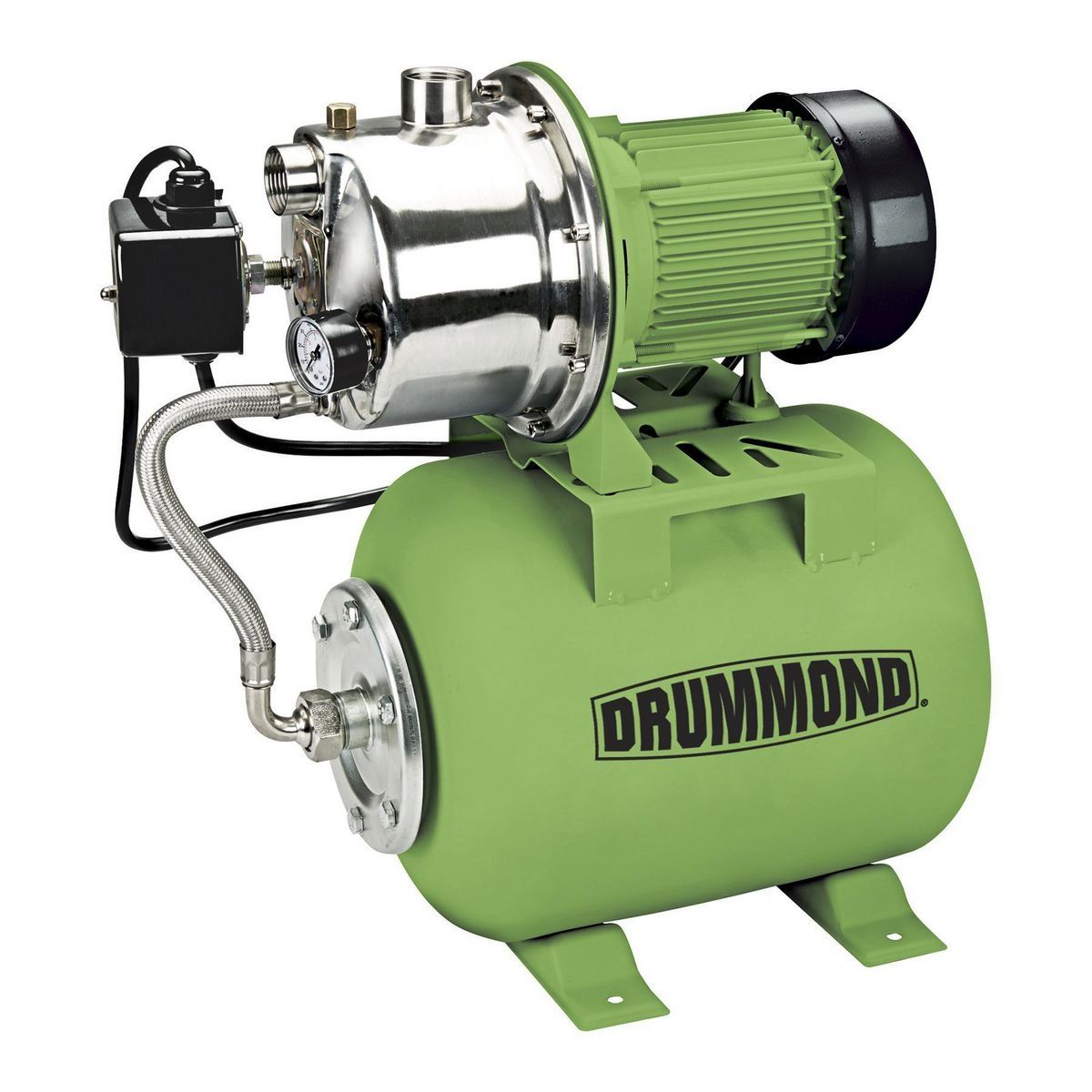IHDiesel73L
Silver Member
- Joined
- May 13, 2010
- Messages
- 168
I am building a small office/guest cabin on the foundation of an old barn on my property. The barn did have electric and water but it was torn down before I bought the property. I've located the services and the electric is adequate but I'm not so sure about the water. The service is 3/4" galvanized pipe that has some corrosion and buildup on the inside (we are on well water that is slightly acidic) plus the barn is about 200' from the house. I haven't measured GPM or pressure yet but just by watching it run out of the pipe I can tell that I'm not getting the normal volume that I would from a new clear 3/4" pipe nor the same 40 p.s.i. that I'm getting in the house. The guest cabin will have a stall shower, toilet and sink. I'll be using a small tankless propane heater for DHW. Mainly I'm concerned about having adequate volume and pressure for a decent shower.
Harbor Freight makes a decent little shallow well pump and pressure tank combo that should boost the pressure just fine but the 5 gallon tank won't keep up with the flow for a shower:

 www.harborfreight.com
www.harborfreight.com
I'm thinking about bringing the water supply into the cabin and plumbing it into the bung of a 55 gallon poly drum-the other bung would be plumbed into the pump/pressure tank. I figure this way the pump should never be starved for flow even during a shower. With a 2.5 GPM shower head even a 10 minute shower should only draw it down about half way and of course the supply will be constantly filling it back up. Seems simple but am I missing anything?
Harbor Freight makes a decent little shallow well pump and pressure tank combo that should boost the pressure just fine but the 5 gallon tank won't keep up with the flow for a shower:

1 HP Stainless Steel Shallow Well Pump and Tank with Pressure Control Switch - 950 GPH
Amazing deals on this 1Hp Stainless Steel Shallow Well Pump at Harbor Freight. Quality tools & low prices.
I'm thinking about bringing the water supply into the cabin and plumbing it into the bung of a 55 gallon poly drum-the other bung would be plumbed into the pump/pressure tank. I figure this way the pump should never be starved for flow even during a shower. With a 2.5 GPM shower head even a 10 minute shower should only draw it down about half way and of course the supply will be constantly filling it back up. Seems simple but am I missing anything?